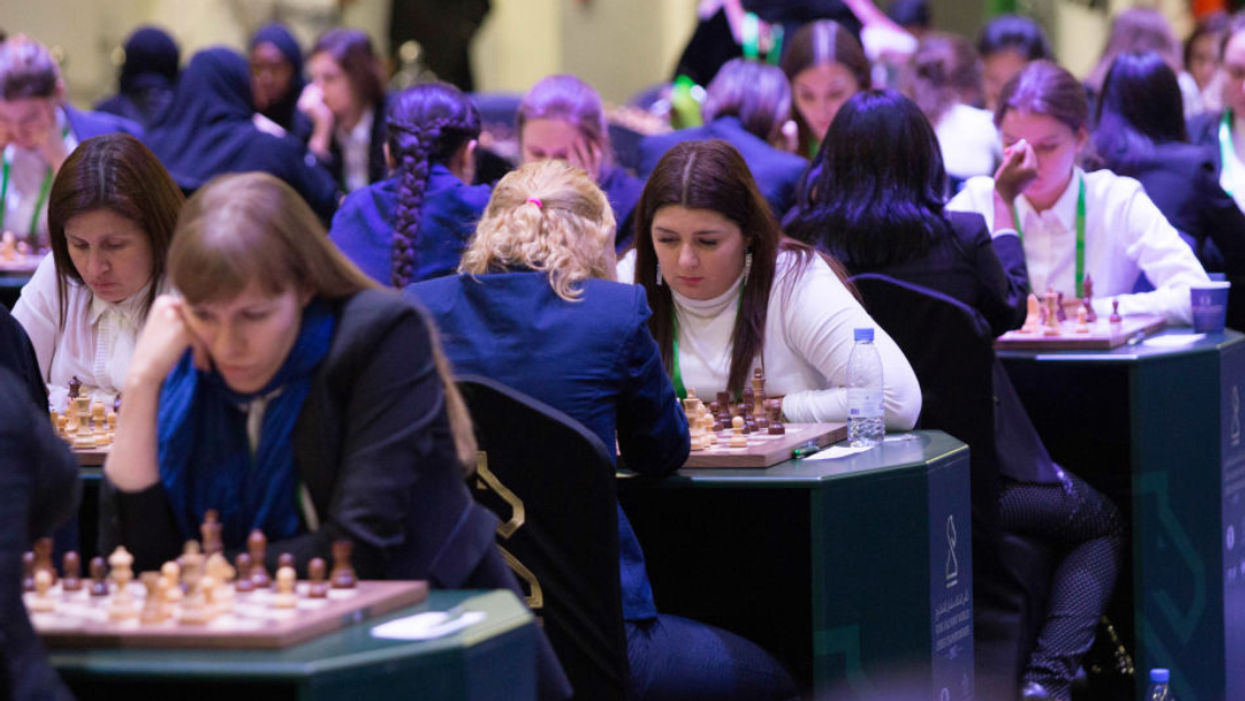The International Chess Federation (FIDE) has come under fire for its decision to ban transgender competitors from its events.
Critics argue that the policy is unfounded, discriminatory, and ignores the reality of transgender individuals' abilities and experiences in chess.
The controversy emerged after FIDE announced its intention to ban trans players from participating in its events for a two-year period. The federation cited differences in physical endurance and hormone levels between cisgender and transgender competitors as the basis for its decision.
Dana Reizniece-Ozola, deputy chair of FIDE's management board, highlighted the need for further scientific research on the impact of hormonal levels on chess performance, particularly during lengthy games that require mental endurance.
Reizniece-Ozola emphasized that there is no intellectual disparity between men and women in chess. She stated that the ban's purpose is "actually to increase the rights of the transgender persons and allow them being registered under their new gender” in FIDE's player directory.
However, transgender players have been participating in chess competitions for years without causing any issues.
Malcolm Pein, director of international chess at the English Chess Federation, expressed disappointment in the new policy, highlighting that decades of research have shown that the biological differences between genders do not significantly impact chess skills.
He suggested that differences in playing strength and level are more related to historical participation levels, which have been predominantly male.
He said:
"Transgender people have been competing very quietly, very happily for a long time with no issues. And we regard the latest developments as unwelcome."
"There may be, you know, tiny differences to do with stamina maybe, and maybe there’s some suggestion of a difference in competitiveness at an early age."
"But genuinely, we think that the disparity in playing strength and level between male and female players is due to the participation levels."
Critics argue that the ban is transphobic and unnecessary.
Cathy Renna, communications director for the National LGBTQ Task Force in the United States, criticized the ban as unjustified and grounded in "trans panic." She argued that the policy lacks a rational basis and will only serve to marginalize and discriminate against transgender individuals.
As she told the Associated Press:
“The new ‘guidelines’ on trans competitors in chess are infuriating, confusing, contradictory and a sign that the anti-trans movement, particularly those who are promoting exclusion in sports, is spreading into other areas of competitive sport and is a very disturbing development."
Amidst growing concerns about the mistreatment and harassment faced by women players, managers, and arbiters in the world of chess, the introduction of the anti-trans policy raises further questions about the inclusivity and fairness of the game.
Currently, the chess community is grappling with the pressing issue of addressing the abuse and harassment that women participants encounter within the male-dominated chess environment.
More than 120 prominent figures within the global chess community have united by signing an open letter that voices their frustration with the prevalence of sexist conduct and instances of sexual violence in the chess world.
These signatories assert that such abusive behavior remains a significant deterrent for women and young girls, especially in their teenage years, causing them to discontinue their involvement in chess.














 @DuncanCecil/X
@DuncanCecil/X @@realDonaldTrump/Truth Social
@@realDonaldTrump/Truth Social @89toothdoc/X
@89toothdoc/X @xray_media/X
@xray_media/X @CHRISTI12512382/X
@CHRISTI12512382/X
 @sza/Instagram
@sza/Instagram @laylanelli/Instagram
@laylanelli/Instagram @itssharisma/Instagram
@itssharisma/Instagram @k8ydid99/Instagram
@k8ydid99/Instagram @8thhousepath/Instagram
@8thhousepath/Instagram @solflwers/Instagram
@solflwers/Instagram @msrosemarienyc/Instagram
@msrosemarienyc/Instagram @afropuff1/Instagram
@afropuff1/Instagram @jamelahjaye/Instagram
@jamelahjaye/Instagram @razmatazmazzz/Instagram
@razmatazmazzz/Instagram @sinead_catherine_/Instagram
@sinead_catherine_/Instagram @popscxii/Instagram
@popscxii/Instagram
